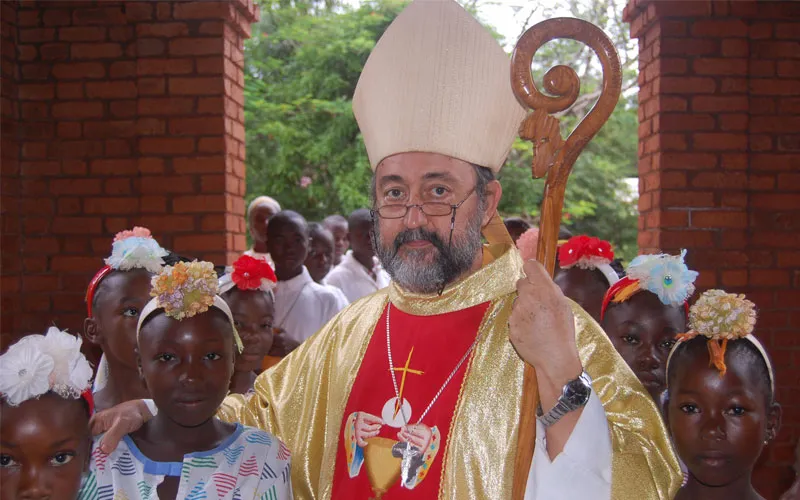“You look them in the eye and they know nothing about rebels, mercenaries, struggles for power ... They only hear the gunshots and explosions. And they are very frightened", the 66-year-old Bishop, a member of the Comboni Missionaries of the Heart of Jesus, says referencing the children.
The Spanish-born Bishop adds in the January 4 report, “There are many children injured by stray bullets, children who are trying to flee to Congo to escape the violence.”
The city of Bangassou fell into the hands of the rebels on Sunday, January 3, a day after another assault on the city of Damara, the hometown of the incumbent President, Faustin-Archange Touadera.
Presidential elections in CAR were held on December 27 amid insecurity and political tensions.
Provisional results announced by CAR’s electoral commission Monday, January 4 show that President Touadera won having secured over 53 percent of the votes.
“Faustin-Archange Touadera, having received the absolute majority of the vote in the first round with 53.9%, is declared winner,” the President of CAR electoral commission, Matthias Morouba has been quoted as telling journalists in the capital, Bangui.
Ahead of the polls, a coalition of armed rebel groups under the auspices of Coalition of Patriots for Change (CPC) launched an offensive. The December 19 move threatened to disrupt the presidential elections with the intention to “march to Bangui.”
The threats are said to be in response to a rejection by the country’s constitutional court of the candidacy of the rebels' ally, ex-president François Bozizé who wanted to challenge President Touadera.
However, the rebels who are said to control two-thirds of the landlocked country have so far been successfully barred from advancing to CAR capital by the military, UN peacekeepers and reinforcements from Russia and Rwanda.
Ahead of the polls, Bishops in the country under their umbrella body, the Central African Episcopal Conference (CECA) cautioned against political alliances comprising armed groups.








